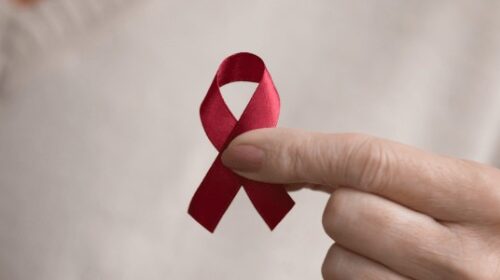Recovery is more than just quitting drugs and alcohol—it’s about making better choices for your overall health and well-being. Boosting dopamine through healthy activities can keep you motivated in your journey.
There are plenty of ways to raise your levels without risks or negative side effects. So why not try to find balance, increase your motivation, and feel joy from natural rewards?
What is Dopamine?
Dopamine is a neurotransmitter in your brain that uses nerves to send messages between your brain and other body parts. Although dopamine has various roles, we’re talking about its job as the “feel good” hormone or pleasure sensor in the body.
Dopamine is part of the body’s reward system. Without proper levels of it, you may struggle with apathy, lack of motivation, or an inability to experience pleasure. These feelings might sound familiar if you’ve ever had problems with drugs or alcohol.
According to the Cleveland Clinic, having appropriate dopamine levels causes us to feel happy, alert, focused, and motivated. And low levels leave us tired and with trouble concentrating.
High levels of dopamine may cause feelings of euphoria or extreme energy. But there are side effects of the highs, including aggression and poor impulse control.
Dopamine and Addiction
Our brains are wired to seek things that make us feel good. Makes sense, right? So when drugs or alcohol enter our bodies, a hefty dose of dopamine is released.
Getting dopamine is good, but in large amounts, like those that come with using drugs or drinking alcohol, our brain chemistry changes.
Over time, your brain’s reward center gets overstimulated, causing you to use a larger amount to get the same effect. A cycle begins, and addiction can form.
Healthy Amounts of Dopamine Are Good for You
Dopamine is involved in almost all functions of our central nervous system, and when at appropriate levels, it’s a good thing. Neurotypical brains release healthy levels of dopamine on their own. And some brains require a little extra help.
There are many ways you can maintain a healthy level of dopamine in your body that won’t end up harming you later on.
Nutritional Support and Your Diet
Our diet can impact our body’s ability to regulate dopamine levels. Certain nutrients play a crucial role, and you can incorporate foods to help stabilize levels and boost your mood.
Our bodies make L-tyrosine, an amino acid essential for dopamine production. Some Tyrosine-rich foods are chicken, turkey, fish, peanuts, almonds, avocados, bananas, dairy products, lima beans, pumpkin, and sesame seeds.
Eating, in general, gives us a dopamine boost, but relying on food to help us cope can lead to disordered eating. Stay away from sugary and high-fat fried foods. Eating breakfast can also help you avoid snacking on foods that aren’t so good for you.
Cooking and eating nutritional food has recovery benefits, too. Lack of proper nutrition can make withdrawal symptoms worse and slow your healing process. At Recovery Unplugged, our programs prioritize fresh food and snacks from our experienced chefs.
Food plays a significant part in all of our lives. Not only does it keep us alive, it brings comfort and connection with other people and naturally increases our dopamine levels. The next time you feel down, consider sharing a meal with someone you care about.
Healing through the Arts
Flexing our creative muscles is a great way to increase dopamine levels. Art therapy has been used since the 1940s and became more widespread in the 1970s. It draws on creativity as a way to improve conditions like anxiety and depression, trauma, and other mental health disorders.
Artistic activities can lower stress, improve mood, and boost dopamine levels. Although some would disagree, we’re all creative beings. You don’t have to be a professional artist to harness the healing power of art.
Tips to use art for boosting your dopamine:
Start a mindful art practice. Focus on the details and be mindful of the process. Aim to get into a “flow state” while using your imagination to enhance your dopamine response.
Challenge yourself. Learn new formats and methods to harness your creativity. Achieving realistic challenges can trigger a sense of reward and surge your dopamine levels.
Create art that you connect with. Choose mediums you enjoy and that have meaning to you. The more you connect with the process, the more likely it will give you the good feelings you want.
Celebrate your creativity. Take a moment to acknowledge your artistic accomplishments, even minor ones. Remember, progress is happening, even if you don’t see the benefits immediately.
Share your art. If you’re comfortable, show your creations to friends, family, and others in your support network. Receiving positive feedback can be a great source of natural dopamine.
Music as a recovery tool at Recovery Unplugged
Music is our medicine. We combine evidence-based addiction treatment with innovative music-focused practices to restore hope and healing for those struggling.
“We utilize music as a catalyst for vulnerability. Music, to me, is a universal communication. It doesn’t matter what race, culture, or identity you are,” says Recovery Unplugged’s Chief Operating Officer, Rachel Jackson, LMHC.
Ways we use music during treatment:
- Personalized playlists as your “recovery soundtrack”
- Morning “pump-up” to get blood flowing
- Music production to create and share your work
- Performances from artists in recovery
Physical Activity is Important
Starting to exercise can be a daunting idea, especially if you’re not used to moving your body that much. However, a little daily movement can boost your brain’s dopamine levels and benefit your overall well-being.
No need to commit to the gym. Get 20-30 minutes of exercise daily to release that dopamine, boost your mood, enhance sleep, and increase your focus.
Start a new routine
The hardest part of exercising is…exercising. But like any habit, the more you do it, the easier it is to continue. Funny how that works, right?
If you’re new to exercise, start small. Establish a routine and do everything in your power to stick to it. Make moving your body a non-negotiable part of your day. And to ensure you stay committed, choose activities that you enjoy.
Some ideas to get you started:
- Yoga or stretching
- Group classes
- Going for a walk
- Strength training
- Running
- Team sports
- Ride your bike
- Swimming
- Dance
Rest, Relaxation, and Stress Management
We all have so much going on at work and home. But the good news is, there are ways to find peace and recharge. Over time, these habits will positively influence your dopamine levels and help you find more joy, motivation, and healing.
Make sleep a priority
Getting the appropriate amount of sleep can keep dopamine levels healthy. Experts suggest between 7-9 hours each night. Good sleep can also lower your stress, help with decision-making, and improve your mood.
Try using a sleep tracker on your smartwatch or another device to monitor your sleep and start making your rest a priority. If you have trouble falling asleep, do some calming activities before bed, like taking a hot shower, meditation, reading, and getting off your phone for a few hours before dozing off.
Relax and manage your stress
We’ve all encountered stress; however, some of us are better at handling it than others. Regardless of which category you fall under, you must be mindful of your stress levels and keep them low to maintain healthy dopamine levels too.
Some ways to lower your stress:
- Listen to soothing music
- Spend time with friends
- Take deep breaths
- Do more of what you enjoy
- Delegate tasks at work and home
- Ask for help when you need it
- Schedule breaks into your day
Social Connections
As inherently social beings, interaction with others is nearly impossible for us to avoid. Positive social connections play an important role in our overall well-being.
One way to nurture these connections is by establishing and sustaining positive relationships during and after your time in treatment. Additionally, meaningful bonds with friends and family can be a source of support and motivation.
Connecting with people you don’t know can give your brain a much-needed dopamine boost, too. A simple act of kindness toward a stranger can brighten their day, and this positivity will rub off. In a world that can always use more kindness, you’re doing your part.
Nature as a Recovery Tool
Nature has remarkable healing power, and it’s a simple—and free—way to enhance your dopamine levels, making it excellent for your recovery.
Whether you’re walking in the woods, spending time next to a body of water, or stepping outside for some fresh air between meetings at work, nature has a unique ability to calm your mind and reduce stress. It’s a natural dopamine booster!
Dopamine is an integral part of a healthy life. Since you no longer use drugs and alcohol to get it, you have to find new ways. And trust us, it’s possible.
Although all this self-work seems daunting, strategies to improve your well-being can help a lot. Integrating natural dopamine-boosting activities into your daily routine paves the way for your journey to recovery and the pursuit of your best self. What are you waiting for? Go get that dopamine!

























